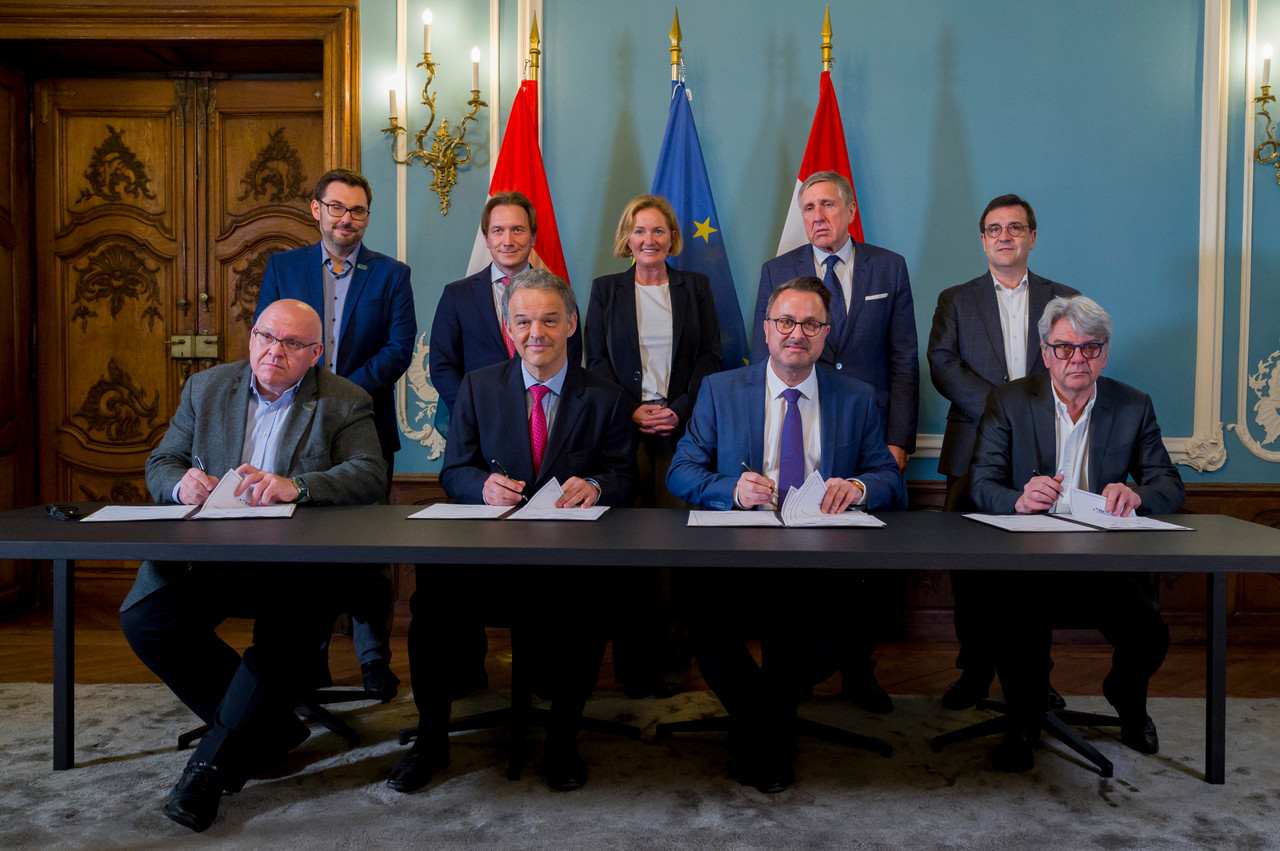“We are four out of five, I would have preferred five out of five”, admitted prime minister Xavier Bettel (DP) at the presentation of the agreement. This would allow the population to maintain its purchasing power against the backdrop of soaring energy prices and the ripple effects, while also compensating for a potential deferral of the index in case a second indexation is triggered.
When a tripartite is convened, “it is not always a success”, admitted the head of government. Indeed, while the agreement reached was welcomed by the tripartite representatives, the absence of the OGBL seemed to dampen any desire to claim victory.
“I assume, as a representative of the CGFP, that few people will congratulate me, but a compromise has been found,” said CGFP president Romain Wolff. “Everyone had to put water in their wine,” he said. “The indexation model has been saved, as has the tripartite model […] the lower wage classes are the most compensated.”
Targeting lower wages
Patrick Dury, President of the LCGB, was equally pleased with the success of the tripartite meeting, which he summarised in four key points: the preservation of the tripartite model, the guarantee that it would be reconvened if the situation worsened, the absence of any questioning of the indexation mechanism, and the introduction of compensations. “Someone on the minimum wage gets an increase of 44 euros and, through the energy credit, they get 84 euros per month,” Dury said, which is “more than if we had brought the index into play. So we have succeeded in ensuring that small and medium-sized salaries are strongly supported”.
The LCGB president tried to convince people that “the interests are often the same between companies and employees. We are in the same boat, which must stay afloat”. He feared that companies would go bankrupt and jobs would be lost as a result of “additional burdens on companies” due to repeated indexations.
Sufficient for some but not for all
UEL president Michel Reckinger said he was delighted with the predictability for the next two years offered by the agreement. He was also pleased with the subsidies targeting those with lower income. “We cannot support three salary bands in one year," he said bluntly. "I don't need to tell you what a signal that would be.”
The OGBL's proposals, put on the table by its president Nora Back were judged “unacceptable for the government”, according to Bettel who said the union's demands far exceeded the billion euro budget. “We do not understand such a demand,” Reckinger commented coldly. “I regret that we have reached this situation”, said Dury. “This agreement is a good agreement. We have achieved the best possible result. For the LCGB, it would not have been an option not to accept it,” he added.
This story was first published in French on . It has been translated and edited for Delano.
